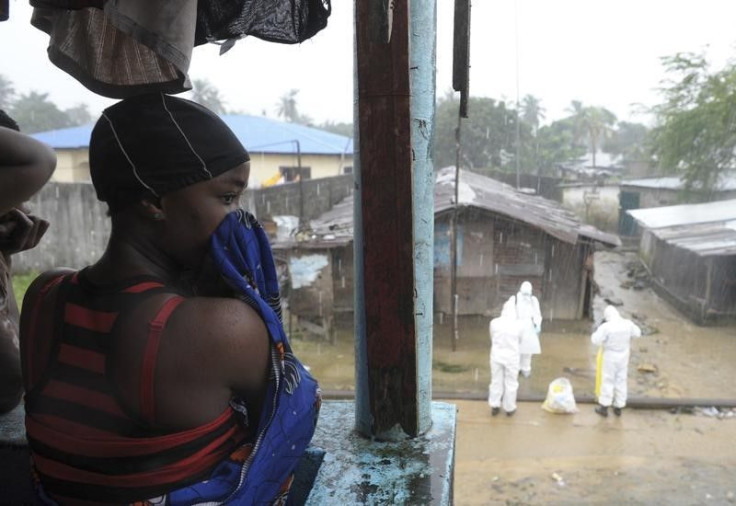Desperate Ebola Victims Turn To Black Market To Buy Survivors’ Blood, Or Convalescent Serum

As the Ebola crisis in West Africa worsens, with the number of infections rising to 4,800 — and deaths up to 2,400 — desperate victims have begun turning to the black market to purchase the blood of Ebola survivors. Convalescent serum — or serum from someone who survived Ebola — has been shown to work as a treatment in some cases, and it offers slim hope to people caught in the quagmire of the infectious disease.
Convalescent serum contains antibodies against the virus, which in theory would protect a person flushed with them from succumbing to the disease. Antibodies are produced by white blood cells and help to destruct foreign invaders like viruses and bacteria. A young African survivor’s serum as well as the experimental drug ZMapp was used to treat Dr. Kent Brantly, an American missionary doctor who was infected with the virus. Now, Brantly has given his own serum to 51-year-old Rick Sacra, another American who was infected after working in Liberia. Sacra is currently hospitalized and recovering in Nebraska.
“We’re hoping [the blood transfusion] jump starts his immunity,” Dr. Phil Smith, medical director of the biocontainment unit at the Omaha, Nebraska hospital that’s treating Sacra, said during a conference call with reporters. “To survive, you have to build up enough antibodies to neutralize the virus. We’re hoping to buy him some time, in other words, to give him antibodies to help his immune system battle the Ebola virus and let him get ahead of the curve.”
Even though convalescent serum has proved successful in a handful of past cases, the World Health Organization (WHO) is remaining vigilant about its overall efficacy. “Studies suggest blood transfusions from survivors might prevent or treat Ebola virus infection in others, but the results of the studies are still difficult to interpret,” the WHO stated. “It is not known whether antibodies in the plasma of survivors are sufficient to treat or prevent the disease. More research is needed.”
But the problem with the black market isn’t whether or not convalescent serum is an effective treatment against the disease. Trading blood illegally can pose a myriad of other dangerous problems — such as the possibility of infecting others with HIV-tainted blood, or causing anaphylactic shock in someone whose body rejects the improperly done blood transfusion.
“[T]his is something we need to work very closely with the affected countries to stem out black market trading of convalescent serum for two reasons,” WHO Director-General Dr. Margaret Chan stated during a press conference. “[I]t is in the interest of individuals not to just get convalescent serum without … going through the proper standard and the proper testing because it is important that there may be other infectious vectors that we need to look at. So, we will certainly bring this matter to the attention of governments and work with them to stamp out any black market activity.”
So what is being done to treat patients? Neither a cure has been discovered, nor has any treatment been approved yet. Currently, most patients in the West African countries hardest hit — Liberia, Guinea, and Sierra Leone — patients are provided with intravenous fluids, blood transfusions, and antibiotics to help maintain their immune systems and reduce pain. Convalescent serum, when transfused properly, is considered a potential treatment. And there are a few experimental drugs out there that researchers continue to work on, such as ZMapp, which seemingly saved the lives of Kent Brantly and Nancy Writebol, but it’s nearly impossible to produce enough of it to provide it to the thousands of infected persons.
But since about half of the over 4,000 people who’ve been infected with Ebola have survived, according to Bloomberg, there is a substantial supply of survivors’ blood out there. The WHO is currently working on finding a system to safely and properly draw the blood from survivors, prepare it, and administer it to patients.



























